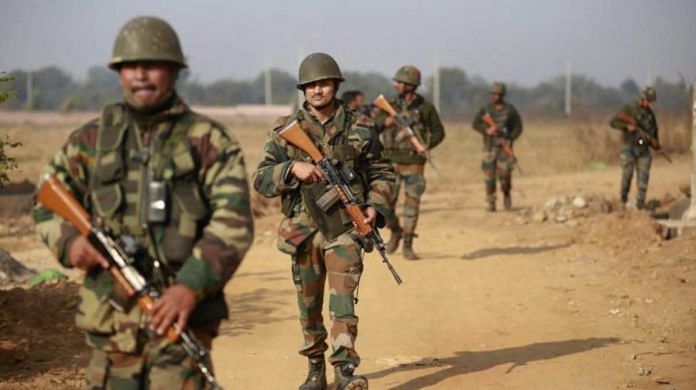
New Delhi: More than half of the over 13-lakh strong Indian Army personnel “seems to be under severe stress”, according to a study published by the tri-services think tank United Service Institution of India (USI). There have been over 1,100 cases of suicide among varous ranks since 2010.
The study, done by a serving Colonel and published on the USI website last month was, however, removed Friday.
“Prolonged exposure of Indian Army personnel to CI (counter- insurgency)/CT (counter-terrorism) environment has been one of the contributory factors for increased stress levels,” Colonel A.K. Mor, senior research fellow at the USI during 2019-20, noted in his study.
The Army, the study further noted, lost more personnel every year due to suicides, fratricides and untoward incidents than in response to enemy or terrorist activities.
While sources in the Army have debunked the study due to its small sample size of just 400 personnel, they did admit that stress was an issue.
On 14 January last year, the USI had also organised a presentation by Colonel Mor on the topic ‘Occupational Stress in Indian Army Due to Prolonged Exposure to Counter Insurgency/ Counter-terrorism Environment’.
Welcome remarks were made by Maj Gen Rajiv Narayanan, head, Research and Centre for Strategic Studies and Simulation (CS3) at USI, followed by its Chairman, Brig Narender Kumar, SM, VSM (Retd) and distinguished fellow.
“The Director, USI suggested the scholar to focus on a selected sample size and diagnose the role and impact of stress on the unit,” the think tank had noted.
The study, which has now been completed, underlined that there has been a significant increase in stress levels among Indian Army personnel in the last two decades due to operational and non-operational stressors.
Also read: Covid dampener for Aero India, several foreign players to give event a miss
‘Stress management measures haven’t achieved results’
Talking about the steps taken by the Army and the defence ministry, the study also noted that various stress management measures implemented in the last 15 years “have not been able to achieve the desired results”.
It said that while operational stressors are well understood and accepted by Army personnel, non-operational stress factors are perceived as avoidable and resented against.
Indian Army officers, it added, experience much higher levels of stress as compared to the junior commissioned officers (JCOs) and other ranks (Ors).
Some of the major organisational causes of stress among Army officers have been identified as inadequacies in the quality of leadership, overburdened commitments, inadequate resources, frequent dislocations, lack of fairness and transparency in postings and promotions, insufficient accommodation and non-grant of leaves.
The main organisational stressors, as perceived by JCOs/ORs, were delay and denial of leaves, excessive engagement, humiliation by seniors, lack of dignity, zero error syndrome, unreasonable restrictions on the use of mobile phones, poor quality of ration and cooked food, besides lack of recreational facilities and conflict with seniors as well as subordinates.
However, the study added, “the overall job satisfaction and pride in uniform still remains high amongst JCOs/ORs. However, at the same time, it seems to be a growing matter of concern amongst officers, requiring urgent interventions from the highest levels of government”.
The study called for an institutionalised approach to stress prevention and management which should be treated “as a leadership role at Unit and Formation level.”



